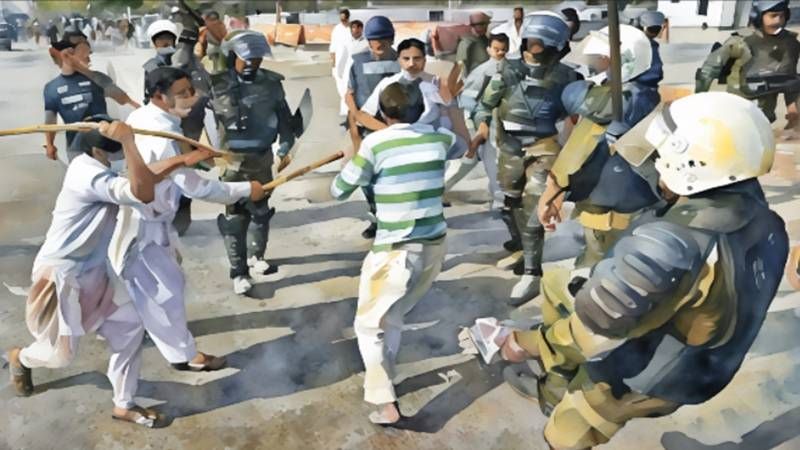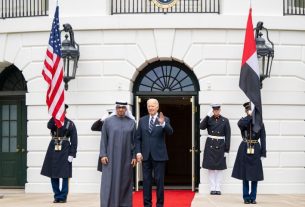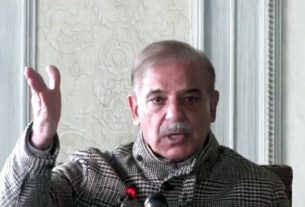The MPO is a weapon more than a legal instrument, for governments to use at their will, against anyone who opposes the status quo.
Regressive laws are arguably just as detrimental to society as lawlessness on its own would be. The Punjab Maintenance of Public Order (MPO) Ordinance, 1960 is one such law. This article is an attempt to remind readers and law-makers, should they be willing to read, of the bleak history of preventative detention orders in the Indian subcontinent.
The Anarchical and Revolutionary Crimes Act of 1919, famously known as the Rowlatt Act, is an early example of preventative detention laws in British India, the need for it and its draconian use.
This law was passed by the British just after the end of the First World War. The purpose behind it was to curb the nationalist upsurge in the colonised territory. The act effectively empowered the colonial British government to arrest, detain any individual they suspected of terrorism, under their definition of it.
The Rowlatt Act was vehemently opposed by Indian leaders. The promulgation of this Act led to Mahatma Gandhi’s satyagraha. Muhammad Ali Jinnah, who would go on to become the Quaid-e-Azam of Pakistan, also resigned from his seat on the Imperial Legislate Council in protest.
If the Quaid-e-Azam resisted preventative detention against his people, how can the leaders of today’s Pakistan justify using this instrument against the very same people? It is, after all, an instrument of oppression, used by our colonial masters against us. One would imagine that there would be no room for this once we achieved our independence from the coloniser. Unfortunately, powerful Pakistanis don’t like it when other Pakistanis think too much. Instead of repealing colonial repressive laws, the practice was continued.
One would think that when legislation on criminal law is present, and courts exist to enforce those laws, what need could there possibly be for another instrument to govern preventative detention?
The Punjab Maintenance of Public Order Ordinance, 1960, was propagated by the then governor of West Pakistan, Nawab Malik Amir Mohammad Khan, during the martial law of General Ayub Khan. The MPO drew its inspiration from the Rowlatt Act and in substance had the same purpose.
Since its introduction, the MPO has regularly been used against political opponents, civilian protestors, doctors, lawyers and – interestingly enough – a District Commissioner in Peshawar once used the MPO to detain parents for declining to administer polio drops to their children.
The MPO is a weapon more than a legal instrument, for governments to use at their will, against anyone who opposes the status quo. The most recent example of its use were the arrests that followed the protests of 9 May 2023.
The threshold required for arrest under the MPO is extremely low. Under the guise of “suspicion,” a District Commissioner can have any individual detained/arrested. This detention can last up to three months. A review board can be constituted under the MPO if the Government wants to extend an individual’s period of detention.
Though the act provides that a magistrate is empowered to conduct a summary trial of those arrested under this law, it is not uncommon for those detained to be deprived of their day in court. Essentially, any Pakistani can be picked up, under false pretenses, detained without Trial, for a period that the Government of the time deems fit. Rather colonial? At least we adopted some of our master’s practices.
Ordinarily, one would find it surprising that a nation would legislate against its own people. Unfortunately, in Pakistan we have seen this happen multiple times over the course of our history. Marginalisation, unequivocal declaration of certain minorities as second-class citizens/heretics and ordinances such as the MPO are unfortunate realities for some Pakistanis.
One would think that when legislation on criminal law is present, and courts exist to enforce those laws, what need could there possibly be for another instrument to govern preventative detention? Perhaps the system doesn’t have much faith in the system either!
Successful nations learn from their past: they move away from regressive policies and laws that were used to oppress their people. The time for repealing this ordinance is now. For his part, the founder of the country MA Jinnah understood that repressive colonial laws cannot be allowed to stand, and made his views well known. However, his vision for a truly independent nation remains a dream.__Courtesy The Friday Times





